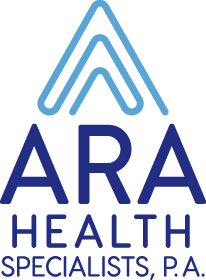All women are at risk for breast cancer and should have a risk assessment by age 30. Learning more about breast cancer risk can be the first step in catching it at its earliest, most treatable stage.
What you need to know:
- One in eight women will be diagnosed with breast cancer.
- Many women believe breast cancer is hereditary, but that’s true only 10 percent of the time.
- Monitor breast-cancer risk factors with the same heightened attention given to blood pressure, cholesterol level and body-mass index.
- Medical history from both sides of a woman’s lineage is crucial in understanding risk.
About the clinic:
The clinic offers greater access to breast cancer risk evaluation and was created to encourage women to proactively participate in their risk reduction and breast health. Our goal is to create a personalized screening care plan with an emphasis on imaging and education.
You will meet with our clinical specialist, Heather Mann, PA-C. She has more than 10 years of experience in Radiology, has trained extensively under our breast radiologists and has completed a certification course in genetic cancer risk assessment.
Types of visits:
Each visit is personalized to the patient’s needs and can be billed to insurance. Types of visits may include:
Breast cancer risk assessment
This visit is for patients who have questions about their risk for developing breast cancer. You will have a thorough discussion with our Breast Imaging Clinical Specialist to discuss individual factors, which may include:
-
- A review of personal and family health history.
- A review of prior breast imaging studies, including mammogram, ultrasound and MRI.
- Education about breast density.
- Discussion of eligibility for genetic testing.
- Creation of a personalized breast cancer screening plan that can be re-evaluated yearly and adjusted when needed based on breast health changes and other individualized factors.
- Any necessary referrals.
Dense breast tissue consultation
Approximately 40% of women over age 40 have dense breast tissue. Dense tissue makes breast cancer more difficult to detect on a mammogram and is also a risk factor for developing breast cancer. Women who have been identified as having category C or D density on a mammogram may sit down with our clinical specialist to discuss in detail what this means and how to best address it with a supplemental screening plan.
Review of breast biopsy results
This visit is for patients who need help understanding their breast imaging and biopsy results. You will have the opportunity to discuss the following in greater detail with our breast imaging clinical specialist:
-
- A review of breast biopsy results and recent imaging workup.
- Preparation for a breast surgery referral if indicated.
- Review of next steps.
Clinic location:
The Breast Cancer Risk Assessment Clinic, led by ARA Health Specialists, is located within the Mission Breast Center at 534 Biltmore Avenue Asheville, NC 28801.
To schedule, contact our ARA Cares Coordinator at (828) 436-5500.





